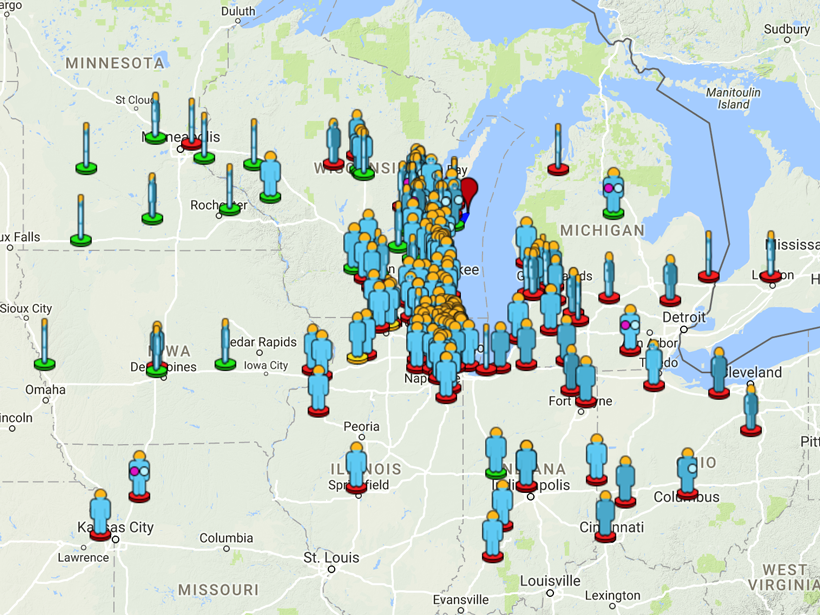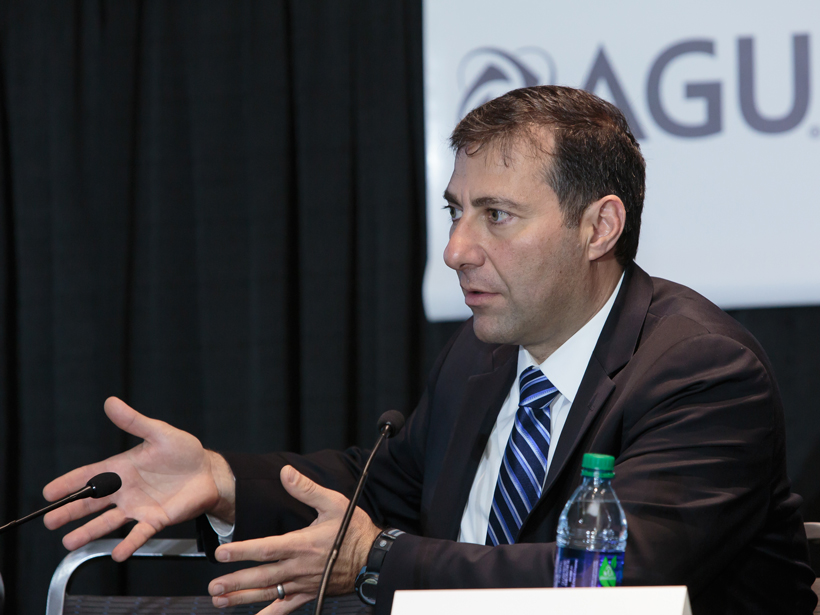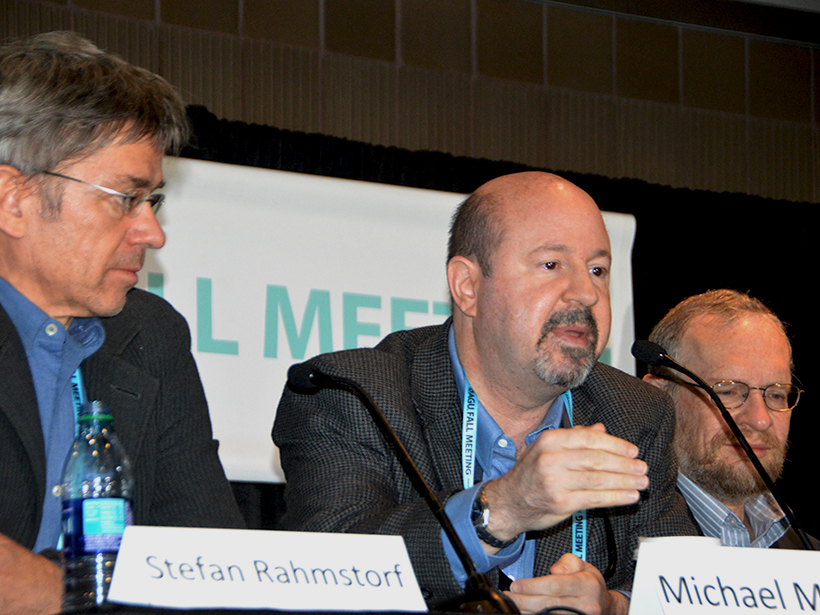Jupiter’s moon Io is known for its lava fountains and roiling lava lakes, but scientists had never seen such an intense eruption in their data until now.
News
Asked at Fall Meeting, Scientists React to Trump Science Agenda
Eos surveyed some attendees at the American Geophysical Union’s recent 2017 Fall Meeting in New Orleans, La., about the White House’s science policies and actions. Here are their responses.
Students Get Help from Weather Radar to Find Space Rock Remains
Teens helped by scientists and educators seek meteorites that plunged into Lake Michigan early this year. Weather radar guided the search for the projectiles.
Modern Chemicals from Mystery Source Taint Fish in Utah Lake
Utah Lake’s fish contain high levels of a potential carcinogen. Could removing some bottom-feeders reduce this contamination?
Restore State Department Science Capacity, Expert Urges
Former State Department science adviser highlights value of science diplomacy and raises concerns about the department’s direction.
Advanced Satellite Tracks Air Pollution in Extraordinary Detail
The unparalleled resolution of the European Space Agency’s Sentinel-5P’s spectrometer will allow scientists to pinpoint pollution sources, the agency reports.
After Obliteration, How Long Until Life Returned?
By studying the Chicxulub crater associated with the extinction of more than 75% of species then on Earth, researchers have begun to fill in a timeline for life’s rebound after the cataclysm.
Boiled or Raw, Snail Shells Keep an Environmental Archive
Snail shells discovered at archaeological sites might still accurately record past weather and vegetation despite being the leftovers of a past meal.
Focus on Climate Solutions, Panelists Say
Time remains to prevent dangerous climate change if people take action now and don’t lose hope, climate experts said.
Threatened Sea Turtles in Hawaii Losing Ground to Rising Oceans
By midcentury, the Hawaiian green sea turtle could lose nesting beaches of increasing importance on Oahu, the most populous island in the chain.










